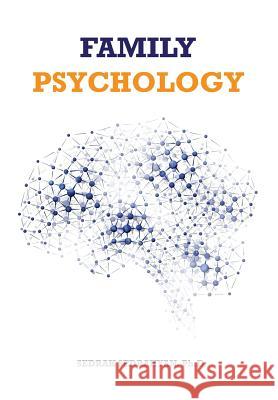Family Psychology » książka
Family Psychology
ISBN-13: 9781483951584 / Angielski / Miękka / 2013 / 538 str.
The book discusses the principal methodological approaches in studying the functions of the family unit, relationships and status issues, the roles of family members and their interactions. The discussion begins with an analysis of roles within a context of social psychological theories. The author develops the transitivity principle-an innovative approach in the study psychology and the theory of roles, applied along with induction theory in the evaluation of conflicts and disadaptations.Considerable attention is devoted to analyzing family conflict, its origin and consequences, and problems related to family members' reciprocal adaptation. The discussion presented focuses on an analytical approach for studying conflict and crisis, including the origin and manifestation of conflict in the family. The author also considers the inability to create the family unit and the essence and role of empathy in inter-family relationships. Within the context of the discussion related to conflict resolution and reaching compromise, the author proposes a new approach grounded in social psychological concepts. Aside from issues related to divorce, problems of functional and disfunctional families also are considered. Family, interpersonal relationships, the nature of disfunctional families and related consequences, reasons for divorce and its impact on the life of family members, and other related issues are discussed in details. The book also covers discussions on the family structure, its functions and results of socialization, management styles, as well as how to what extent these issues are transferred into the broader social environment, thus influencing different aspects of an individuals life in society.
Zawartość książki może nie spełniać oczekiwań – reklamacje nie obejmują treści, która mogła nie być redakcyjnie ani merytorycznie opracowana.











